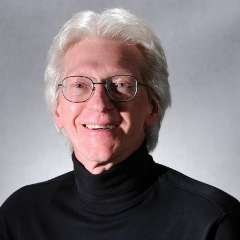It took five years, but Plácido Domingo finally realized his dream of conducting Don Giovanni in the theater where Mozart premiered it 230 years ago. If the glow surrounding the performance was more imagined than real, it was nevertheless one of the rare star turns that actually lived up to all the hype.
The idea started with Domingoʼs first visit to the Estates Theatre, after a recital in Prague in December 2012, when he asked some friends to show him the cultural highlights of the city. Inspired by the visit – moved to tears, according to one member of the party – he decided almost immediately that he had to return and literally follow in Mozartʼs footsteps. The composer himself conducted the very first performance of Don Giovanni (from the harpsichord) at what was then the Nostitz Theatre on October 29, 1787.
The hurdles to making it happen were considerable. Local organizers had to find sponsors and shake loose some government funding, singers had to be booked, and Domingo had to find time in a schedule already jammed with singing, conducting, running the Los Angeles Opera and his many other projects. Even with the long advance time, he finally had to cancel some dates in Los Angeles to be in Prague for an anniversary performance. And his original idea of casting all laureates of his Operalia competition fell short, as coordinating that many schedules proved impossible.
The press conferences in Prague started in January, and on subsequent visits Domingo kept the media enthralled, auditioned Czech singers and worked out production details, with his wife and artistic partner Marta constantly at his side. In many ways, they could not have asked for a better situation. Pragueʼs National Theater takes its responsibility as the keeper of the Don Giovanni flame seriously, with a landmark 1969 production always ready to be rolled out. Compelling sets by Josef Svoboda and lavish costumes by Theodor Pištěk capture the period charm of the original, the direction (handled on this occasion by National Theater veteran Jiří Nekvasil) is straightforward and the orchestra can play the opera in its sleep.
Though he talked many times about how emotional the experience was for him, Domingo was all business when he finally made his way into the pit for the first of two performances, turning to offer a quick nod to the audience before raising his baton for the overture. He prefers a brisk tempo, and that was the case from the opening bars, with more pep in the playing than one normally hears at Prague operas. Over the course of the evening, watching him work was at least as fascinating as anything happening onstage. With a well-trained orchestra that needed only jabs of emphasis and encouragement at certain points, Domingo was able to spend much of his time conducting the singers, to great effect. His support was like a masterclass – an extra bar here to draw out a soulful solo, a vocal flourish there to match the orchestra, the King of Opera making his singers look good.
And good they were. Four Operalia winners – bass-baritone Simone Alberghini (Don Giovanni), soprano Irina Lungu (Donna Anna), tenor Dmitry Korchak (Don Ottavio) and soprano Julia Novikova (Zerlina) – all brought world class voices and smooth delivery. Korchak was particularly strong in his showcase arias in the second half, and Lunguʼs dramatic acting skills matched her anguished vocals. Visiting bass Adrian Sâmpetrean showed great comic brio as Leporello, and soprano Kateřina Kněžíková (Donna Elvira), a veteran of many National Theater Mozart productions, was as strong as any of her more famous counterparts. Baritone Jiří Brückler (Masetto) and bass Jan Šťáva (Il Commendatore) were competent but clearly not in the same league as the rest of the cast.
Domingo looked pleased during the performance, and in the many curtain calls afterward he gestured repeatedly to the orchestra, occasionally shaking his head as if he couldnʼt quite believe the caliber of the playing. The evening had its glitches – at one point, a descending backdrop nearly broke on an errant open door. But overall the production had the polish and zest of a longtime cast playing in a much bigger and more famous house raher than a 635-seat historical curiosity.
And while it was fueled by months of anticipation, there was something special in the air. The palpable sense of history, enthusiasm of the cast and excitement of the star conductor all contributed to an atmosphere that made the performance seem larger than life. Thatʼs what good opera should be, and it was thrilling to see that in the right hands and setting, this one still has the power to amaze and delight.




